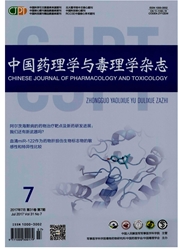

 中文摘要:
中文摘要:
亚精胺普遍存在于动植物细胞中,发挥广泛的生物学作用。自噬是细胞内重要的降解途径之一,细胞通过自噬.溶酶体通路,清除长寿命蛋白和受损细胞器,维持细胞内环境稳定。大量研究结果表明,亚精胺调控的细胞自噬参与众多生理病理过程,其表达水平异常又可加速衰老、诱发神经退行性疾病等。本文对亚精胺诱导细胞自噬的病理生理学作用进行综述,并以衰老和神经退行性疾病为例,阐释亚精胺调控的细胞自噬与人类生理病理的相关性。
 英文摘要:
英文摘要:
Spermidine, presented widely in animal and plant cells, plays a variety of biological roles. Autophagy is a pivotal intracellular degradative pathway. Autophagy-lysosome pathway contributes to maintenance of intracellular homeostasis via clearance of long-lived proteins and damaged cellular organelles. There is much evidence that spermidine-modulated autophagy is involved in the regu- lation of several pathophysiological processes. However, the abnormal level of spermidine may accelerate aging and lead to the development of neurodegenerative diseases. Here, we reviewed the pathophysiological significance of spermidine in mediating autophagy induction. In addition, the association between spermidine-induced autophagy and pathophysiological processes (e.g. aging and neurodegenerative diseases) was discussed.
 同期刊论文项目
同期刊论文项目
 同项目期刊论文
同项目期刊论文
 期刊信息
期刊信息
